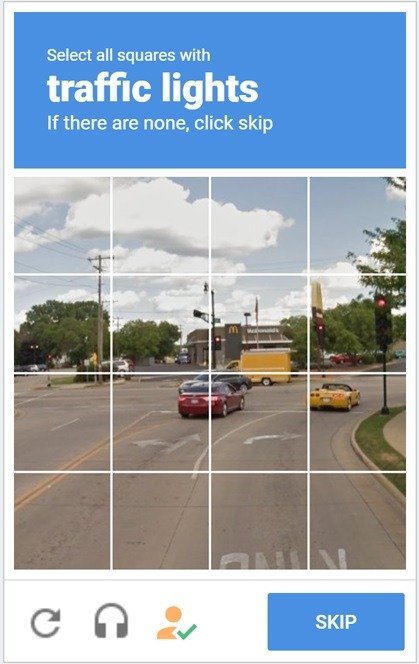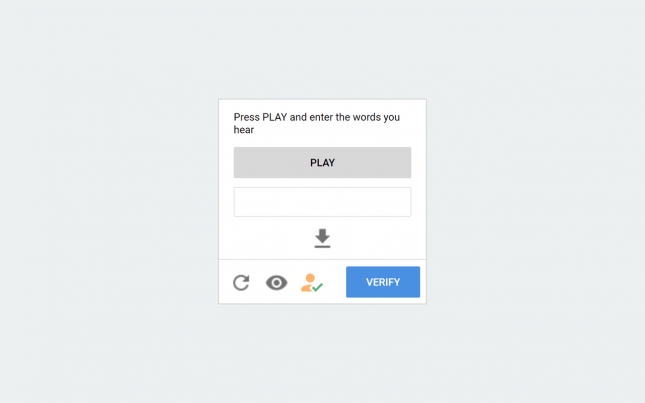Buster promises to solve captchas automatically
Buster: Captcha Solver for Humans is a browser extension for Mozilla Firefox, Google Chrome, and related browsers to make captchas less frustrating on the Internet.
Websites may display captchas for verification to site visitors; this is done often to block bots and flagged IP addresses from accessing a site or service.
Internet users may run into captchas for a number of reasons: when they use shared IP addresses or VPNs, or when their requests trigger flags, e.g. when they make too many connections in a certain amount of time.
One of the most common forms of a captcha requires visual identification of objects on a photo or image, e.g. to identify cars, shops, or traffic signals on the photo. Users need to click on squares in a grid to identify the requested objects and solve the captcha.
The solving of captchas can be quite frustrating; not only do captchas interrupt workflows, they are sometimes difficult to solve and may prevent access to certain resources if they can't be solved.
Buster: Captcha Solver for Humans

Buster: Captcha Solver for Humans is a free browser extension to automate the solving of captchas. While the extension won't just skip the captcha, it uses an ingenious method to solve them.
Most captchas support audio challenges next to visual challenges. The extension uses speech recognition to solve captchas automatically so that you don't have to do so.

All you do is click on the extension button at the bottom of the widget to have it solve the audio captcha automatically.
Speech recognition is not infallible but you can retry if the extension did not get it right the first time. Granted, it may sometimes be faster to solve the captcha manually but if you run into one that you can't solve, you may want check if Buster can solve it for you.
Buster is not the first extension of its kind. Cloudhole was released in 2016 for Firefox to make Cloudflare captchas less painful; Cloudflare launched Privacy Pass in 2017 to limit the number of captchas displayed to users, and Google launched reCaptcha v3 in 2018 to switch to a captcha system that required no user interaction.
.
This article was first seen on ComTek's "TekBits" Technology News

- Log in to post comments